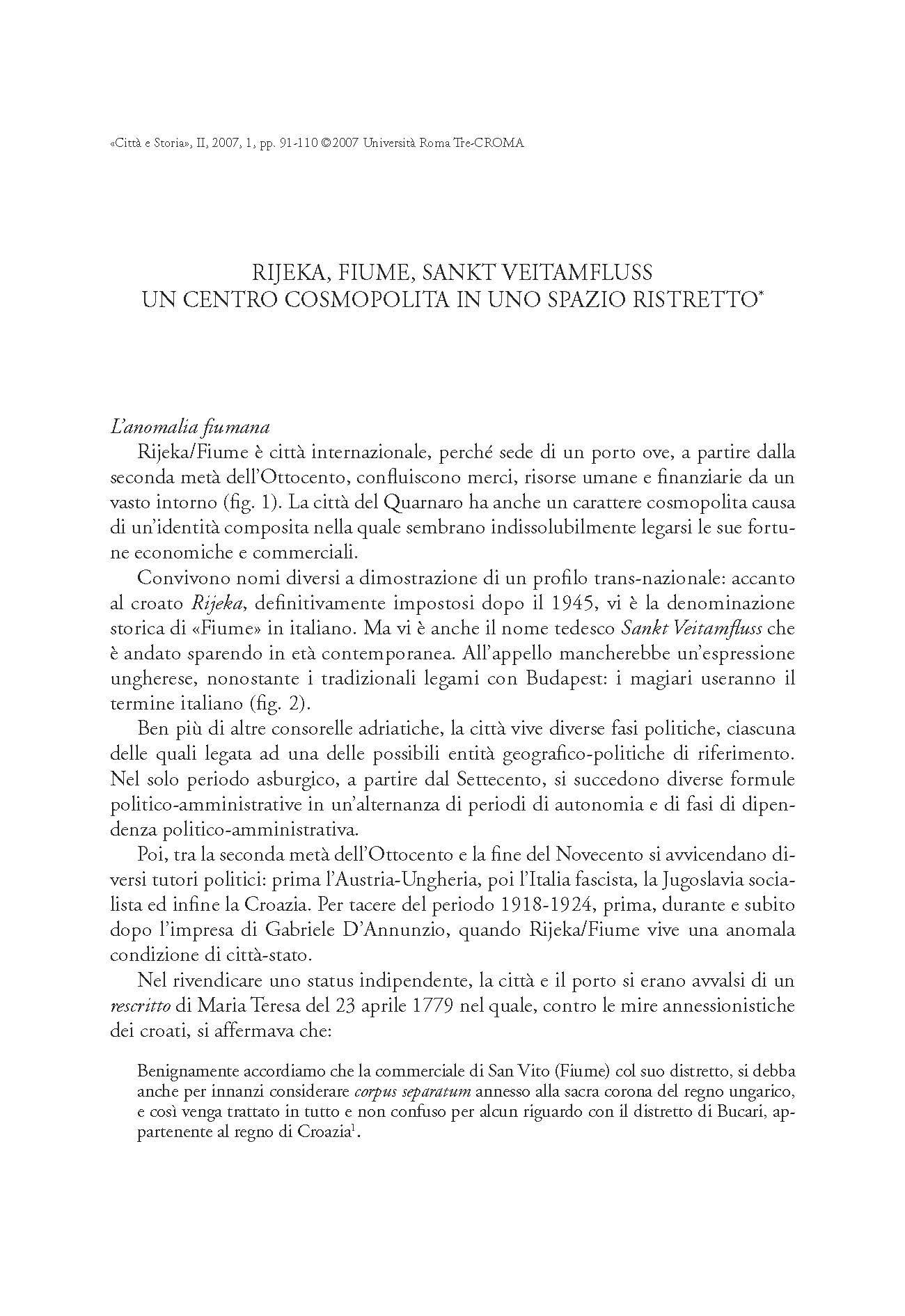Rijeka, Fiume, Sankt Veitamfluss: un centro cosmopolita in uno spazio ristretto
6,00 €
How far political changes may affect the urban framework ? How much, in particular, can changing rules support and favour physical transformations of the contemporary city ? The story of the new harbour seems to reveal a strict connection between the two sides of the question.
In the span of 100 years, the city of Rijeka/Fiume has passed under four different rules: Austria-Hungary, Italy, Jugoslavia and finally Croatia. In this period, fortunes and misfortunes were depending on an alternate sequence of internationally oriented and not-internationally oriented phases.
Between 1870 and 1914, the port-city took great advantage of a special political statute. At that time Rijeka/Fiume was directly linked to the Hungarian crown, as an autononomous enclave within the Croatian kingdom. The constraining border line did not prevent, however, outstanding performances and high rates of development in both its economic and social life.
As a witness of the Fiume melting pot, Giovanni de Ciotta was appointed mayor in 1872. He was also entrusted with the power of the Governor and he was on chair until 1896, becoming a determinant figure in the golden period of the city.
How far political changes may affect the urban framework ? How much, in particular, can changing rules support and favour physical transformations of the contemporary city ? The story of the new harbour seems to reveal a strict connection between the two sides of the question.
In the span of 100 years, the city of Rijeka/Fiume has passed under four different rules: Austria-Hungary, Italy, Jugoslavia and finally Croatia. In this period, fortunes and misfortunes were depending on an alternate sequence of internationally oriented and not-internationally oriented phases.
Between 1870 and 1914, the port-city took great advantage of a special political statute. At that time Rijeka/Fiume was directly linked to the Hungarian crown, as an autononomous enclave within the Croatian kingdom. The constraining border line did not prevent, however, outstanding performances and high rates of development in both its economic and social life.
As a witness of the Fiume melting pot, Giovanni de Ciotta was appointed mayor in 1872. He was also entrusted with the power of the Governor and he was on chair until 1896, becoming a determinant figure in the golden period of the city.

